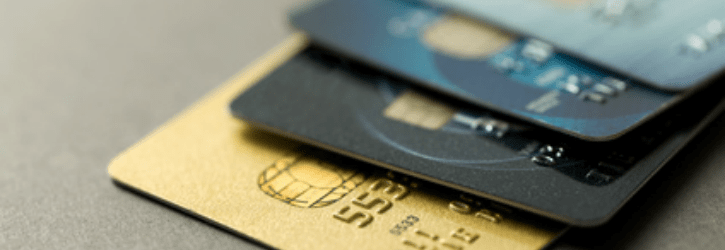Welcome To The Data Leak Lawyers Blog
We focus on the latest news surrounding data breaches, leaks and hacks plus daily internet security articles.
We focus on the latest news surrounding data breaches, leaks and hacks plus daily internet security articles.

News of the massive MGM data breach is yet another example of hackers successfully hitting the travel and tourism industry, and the fallout of this one is monumental.
First reported by ZDNet, it’s understood that the attack took place last summer, and that some of the former guests affected by the cyberattack have been notified. It’s understood that at least 10.6 million guests have been affected by the attack, although MGM has also admitted that there could be more.
This breach follows a string of infamous attacks involving the tourism industry in the last few years. The first GDPR Group Litigation Order (GLO) in England and Wales is for the 2018 British Airways data breaches, and both Marriott and Cathay Pacific have also been hit with attacks in recent years.

We represent a lot of victims for cyber theft compensation claims. This includes individual claims and the many people involved in our group and multi-party actions.
We can represent victims for compensation cases on a No Win, No Fee basis if they’re eligible to claim with us. We understand that the impact of having your information exposed and / or stolen can be devastating, and organisations are still not doing enough to protect the valuable data that they store and process.
As a leading firm of data breach compensation experts that have been fighting for the rights of victims for a lot longer than many other firms, we can help you.

Online fraud compensation claims are growing as criminals are making use of e-skimming hacks to steal payment card information in real-time.
When you withdraw money from an ATM or make a card purchase in a shop, you can shield the keypad when you enter your pin and keep an eye over your shoulder for anything suspicious. You may also be able to tell if there’s something dodgy on the ATM or card reader that could indicate it’s not secure.
But when you’re shopping online or in an app, you can’t really take those kinds of precautions. People are at increasing risks of e-skimming which involves card information being stolen in real-time online, so here’s our advice for what victims can do.

Victims of travel data breaches can be entitled to make a claim for compensation, and we can offer No Win, No Fee representation.
Data breaches, in general, are on the rise, and it has been reported that travel and holiday fraud matters are on the rise as well. Travellers – especially frequent ones – need to be careful and be wary of their information being misused or exposed as criminals target their valuable data.
With attacks against travel companies said to be on the rise, it’s important that we – as a leading firm of data compensation specialists – let you know about your rights.

It’s important that people know that they can make a claim for cybercrime compensation as a victim of a hack or cybersecurity event.
Over the last few years, we’ve seen significant increases in the number of cyberattacks taking place. As a pioneering law firm in the complex and niche area of data breach compensation law who have been at the forefront of fighting for victims’ rights for a long time, the number of cases we take forward has rapidly grown. A number of the dozens of group and multi-party actions that we’re involved with also stem from cyberattacks given how often they’re occurring.
It’s important that victims know that they can be entitled to compensation and that no one should suffer in silence. As a leading, expert data breach compensation law firm, here’s what you need to know.

If your debit or credit card is hacked, you could be entitled to make a claim for data breach compensation, even if no money was stolen or if you’ve been refunded.
If you have lost money, we can include this as part of a legal case as well. However, you don’t have to have suffered an actual financial loss to be able to make a No Win, No Fee claim with us.
The distress that victims can suffer when this kind of personal and sensitive information is exposed can be substantial. Data breach compensation pay-outs can reflect the distress that people suffer from by the loss of control of their personal information. In this area of law, we are experts with a proven track record of settling damages claims over several years.

News of the New Year’s Honours List data leak incident rounded off what has been yet another year of leaks, breaches and hacks.
You can take it from us – as data breach experts – that news of this breach was nothing to be surprised about. We’re often asked for our expert insight by the media as we discuss what feels like a never-ending carousel of incident after incident, and this latest leak was yet another in what has been a big year for data breaches on the whole.
Our client numbers continue to grow given how often these kinds of incidents are taking place. When personal and sensitive information is misused or exposed, it’s important that victims know their rights.

We have previously discussed the issues surrounding gaming data breaches, and have been asked for help and representation for cases of this nature.
The market for online gaming is massive, and data will be exchanged across the world as part of activities players are engaged in. There will be a lot of accounts that contain a great deal of personal data, and there will also be financial information stored for processing payments.
There’s also a huge “black market” for hijacked accounts as well. There are the players whose accounts they have spent time and money on being stolen, and there are those who are prepared to pay for built-up accounts. This leaves serious questions over the future of gaming and how they may be affected by data breaches.

Given the continually large volumes of incidents that are happening, it’s important to approach the subject of data breaches and encryption.
In some cases, leaks can happen due to human errors or system problems. Some hacks may take place because 100% effective defence is a hard thing to achieve. This doesn’t excuse an organisation when it comes to their responsibilities, but it’s important for them to understand that it’s about more than just trying to stop incidents; it’s also about preventing damage.
And that’s where encryption and even basic levels of protection is king.

The Sweaty Betty data breach incident appears to be another case of cybercriminals using malicious code in checkout systems to steal sensitive information.
We’ve literally seen this before. Two of the big recent examples are British Airways and Ticketmaster; both of which are thought to be attacks carried out by the same group of hackers. Inserting code into checkout systems can lead to personal details and payment card data being exposed and that’s exactly what has happened in the Sweaty Betty case.
Anyone who has been affected in England and Wales may be entitled to bring a claim for data breach compensation, and we can help.
Fill out our quick call back form below and we'll contact you when you're ready to talk to us.